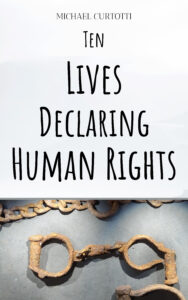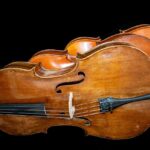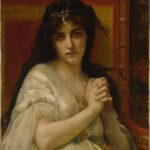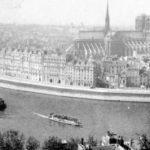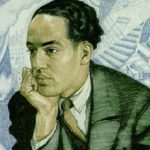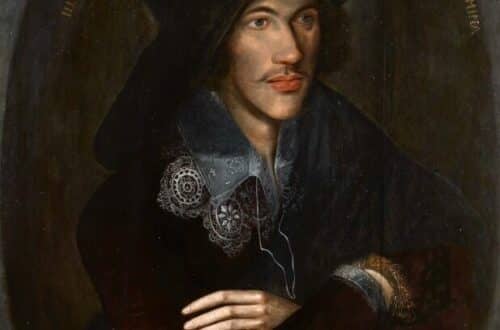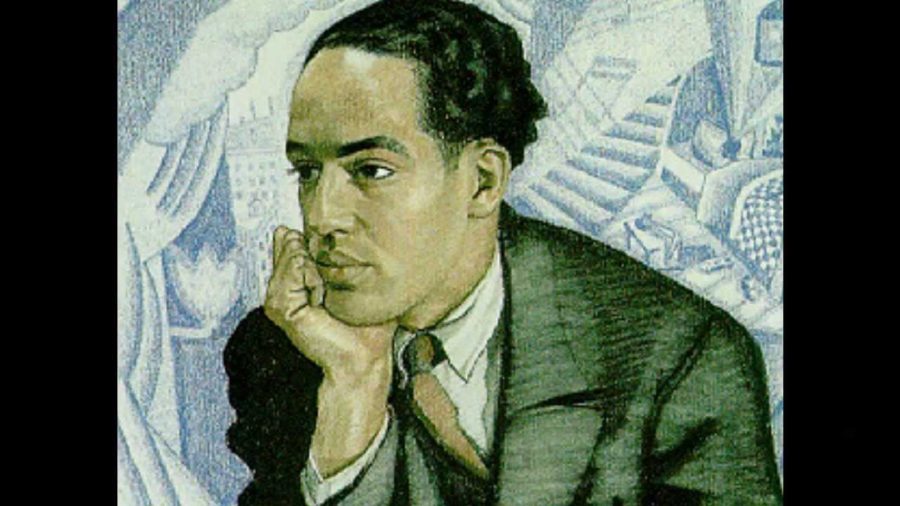
Walt Whitman – His Yearning and Ardent Poetry
The celebrated American poet, Walt Whitman, lived from 1819 until 1892. It was a tumultuous time of change in the United States; an epoch which is reflected in his poetry and in his hopes for the future of America. Two of his poems – poems reaching for a better world – appear below. They are presented both in original and in Italian translation.
Il celebre poeta americano, Walt Whitman, visse dal 1819 al 1892. Era un’epoca tumultuosa e di cambiamento negli Stati Uniti; un’epoca che si riflette nella poesia di Whitman e nelle sue speranze per il futuro dell’America. Due delle sue poesie – poesie che cercano un mondo migliore – appaiono in seguito. Sono presentate in lingua originale inglese e in traduzione italiana.
But first a little about him. Walt Whitman’s love for literature began as a printer’s apprentice in the printing industry of New York. By 1836, aged only 17, he was already a teacher on Long Island. By 1841 he had become a full-time journalist in Brooklyn. In 1848, after witnessing the sale of slaves in New Orleans, he founded the abolitionist newspaper Brooklyn Freeman.
Ma prima, qualcosa sul poeta. La passione di Walt Whitman per la letteratura è cominciata quando era un apprendista nelle stampe di New York. Nel 1836, quando aveva solo 17 anni, egli fu già un insegnante a Long Island. Dal 1841 è diventato un giornalista a Brooklyn. Dopo aver visto la vendita di schiavi a New Orleans nel 1848, ha fondato il giornale abolizionista Brooklyn Freeman.
His major poetic work was a collection of poetry called The Leaves of Grass. He first published this in 1855, but then continued to work on it over many versions. Although initially only consisting of 12 poems, by 1892 when he finished the last version, it had grown to almost 400 poems.
La sua opera poetica più importante fu la sua collezione di poesie che ha intitolato The Leaves of Grass (Foglie d’Erba). Ha prima pubblicato la collezione nel 1855, ma poi l’ha continuata a sviluppare in diversi versioni. Anche se prima aveva solo dodici poesie, dal 1892 quando ha finito l’ultima versione, la collezione era cresciuta a quasi 400 poesie.
In the meantime he had lived through the civil war years, after which he devoted himself to working in hospitals. He later worked in government and in 1873 suffered a stroke, which partially paralysed him.
Nel frattempo, aveva vissuto gli anni della guerra civile, dopo cui si è dedicato a lavorare negli ospedali. Più tardi ha lavorato col governo e nel 1873, ha subito un infarto che lo lasciò parzialmente paralizzato.
In the poems which follow, we will see his universalist leanings. His This Moment Yearning and Thoughtful, speaks to universal brotherhood. His I sit and look out, speaks to solidarity with suffering of the excluded in society. Below, these poems are presented, together with my Italian translation.
Nelle poesie in fondo, vedremo le sue tendenze universaliste. Nella sua This Moment Yearning and Thoughtful (In quest’attimo ardente e pensoso), parla di fratellanza universale. La sua I sit and look out (Mi siedo e guardo lungi), dimostra solidarietà con la sofferenza di coloro ai margini della società. In seguito, queste poesie sono presentate insieme alla mia traduzione italiana.
Despite the often inclusive bent of his poetry, Whitman appears to have been influenced by the racist theories of his time; with an inconsistent attitude towards the slaves he sought to free and in his acceptance of the view that native Americans would ‘die out’. Nonetheless, Whitman’s, The Leaves of Grass was held up by black writers and poets of his era, for its freedom from the condescension towards the black population found in the poetry of others, and as a model to be emulated by black writers. Langston Hughes, viewed Whitman as America’s greatest poet. In 1954, Langston wrote a poem dedicated to him called “Old Walt”. Langston’s “I, too sing” responds to Whitman’s poetry.
Nonostante la solita tendenza inclusiva della sua poesia, Whitman sembra essere influenzato dalle teorie razziste della sua epoca; con un’attitudine incostante verso gli schiavi che cercava di liberare, e nella sua accettazione che i nativi d’America sarebbero scomparsi. Ciò nonostante, la sua The Leaves of Grass era considerata da scrittori e poeti neri della sua epoca (per la mancanza di condiscendenza verso la popolazione nera nella poesia di altri) come modello da essere emulato da scrittori neri. Langston Hughes considerava Whitman come il più grande poeta dell’America. Nel 1954, Langston ha scritto un poema dedicato a lui chiamato “Old Walt”. Il poema I, too sing (Io pure canto) di Langston risponde alla poesia di Whitman.
This Moment Yearning and Thoughtful
In quest’attimo ardente e pensoso
This moment yearning and thoughtful sitting alone,
It seems to me there are other men in other lands yearning and thoughtful,
It seems to me I can look over and behold them in Germany, Italy, France, Spain,
Or far, far away, in China, or in Russia or talking other dialects,
And it seems to me if I could know those men I should become
attached to them as I do to men in my own lands,
O I know we should be brethren and lovers,
I know I should be happy with them.
by Walt Whitman
In quest’attimo ardente e pensoso, seduto da solo,
Mi sembra che altri umani, in altre terre, ci siano, ardenti e pensosi,
Mi sembra di poter guardare lì e vederli in Germania, Italia, Francia o Spagna
O molto lontano, in Cina o Russia, parlando in dialetti loro,
E mi sembra che se potessi conoscere quegli uomini diverrei,
attaccato a loro come sono con la gente della mia terra,
E sono sicuro che cari e fratelli saremmo,
E che con loro sarò felice.
Italian translation by Michael Curtotti
I Sit and Look Out
Mi siedo e guardo lungi
I sit and look out upon all the sorrows of the world, and upon all oppression and shame,
I hear secret convulsive sobs from young men at anguish with themselves, remorseful after deeds done,
I see in low life the mother misused by her children, dying, neglected, gaunt, desperate,
I see the wife misused by her husband, I see the treacherous seducer of young women,
I mark the ranklings of jealousy and unrequited love attempted to be hid, I see these sights on the earth,
I see the workings of battle, pestilence, tyranny, I see martyrs and prisoners,
I observe a famine at sea, I observe the sailors casting lots who shall be kill’d to preserve the lives of the rest,
I observe the slights and degradations cast by arrogant persons upon laborers, the poor, and upon negroes, and the like;
All these—all the meanness and agony without end I sitting look out upon,
See, hear, and am silent.
by Walt Whitman
Mi siedo e guardo lungi, a tutte le pene del mondo, a tutta l’oppressione, a tutta la vergona,
Odo i singhiozzi convulsivi dei giovani, pieni di angoscia di loro stessi, pieni di rimorsi dopo colpe fatte,
Veggio nella bassa vita, la mamma maltrattata dai suoi figli, morendo, abbandonata, scarna, disperata,
Veggio la moglie maltrattata da suo marito, veggio il seduttore di giovani donne,
Segno la gelosia ed il rancore, l’amore che non è ricambiato, che cerca di nascondersi, queste cose le vedo sulla terra,
Veggio i meccanismi di battaglia, pestilenza, tirannia, veggio martiri e prigionieri,
Veggio la carestia al mare, osservo marinai che fanno sorteggio per chi sarà ucciso, per così salvare le vite degli altri,
Osservo gli affronti e le umiliazioni di gente superba contro i lavoratori, i poveri, e i neri, e altri come loro;
Tutto questo — tutta la malvagità e il tormento senza fine, mi siedo e guardo lungi,
Veggio, odo, e sono muto.
Italian translation by Michael Curtotti
With grateful thanks to Azzurra Cirrincione for her proofreading of the Italian translation.
Image
Portrait of Walt Whitman by Thomas Eakin 1887.
Sources
What Langston Hughes’ Powerful Poem “I, Too” Tells Us About America’s Past and Present

